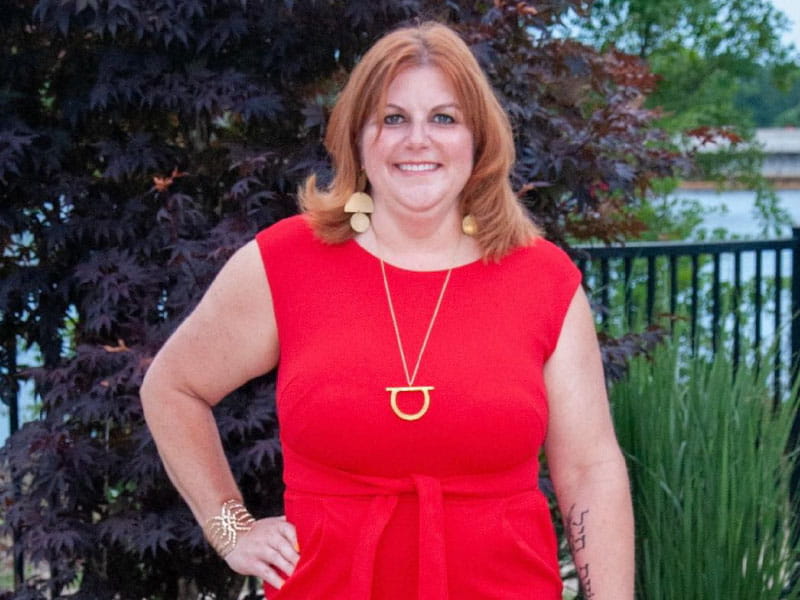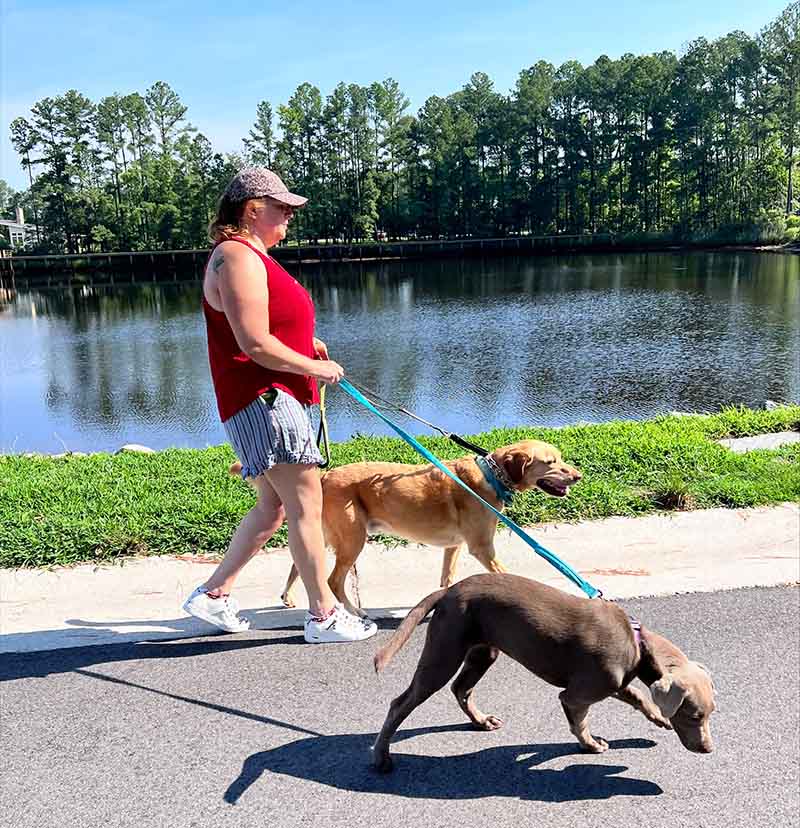When her smartwatch indicated she might be in AFib, she thought it was a mistake
By Diane Daniel, American Heart Association News

Megan Buchholz groggily read the notification from her smartwatch. Its vibration had roused her out of a deep sleep.
At 3 a.m. on a Monday this past March, she read an alert that said the device identified an irregular rhythm suggestive of atrial fibrillation, or AFib, an irregular heartbeat that can lead to blood clots, stroke, heart failure and other heart-related complications.
"That's weird," Buchholz thought. "I don't feel bad, and I'm sure I'm not in AFib."
She went back to sleep.
The watch buzzed her awake again at 6 a.m. with another AFib warning. More awake this time, she realized she'd missed another alert that arrived prior to the 3 a.m. warning.
She measured her pulse. It was high, around 180.
Buchholz, who lives in Chesapeake, Virginia, remained more perplexed than worried because she felt fine. But with a background in nursing and nursing administration, she didn't want to ignore the numbers.
She tried some deep breathing exercises to relax. Her heart rate remained high.
Buchholz was scheduled to visit a respiratory equipment supplier to pick up a CPAP machine prescribed by her doctor to help with her sleep apnea, a sleep disorder in which breathing repeatedly stops and starts. The condition may have put her at increased risk for AFib. She was supposed to have gotten the machine five months before, but it was on back order. Now it was finally available.
The sleep apnea was related to long COVID, which Buchholz was diagnosed with last year, months after a relatively mild case of COVID-19.
That hadn't been her only COVID-19 complication.
Last summer, doctors detected several small blood clots in her lungs. She was prescribed blood thinners.
She also experienced severe fatigue, hypersensitivity to touch, extreme back and hip pain, and brain fog. Those problems had dissipated with acupuncture treatment, therapy and stress reduction.
So, on this Monday morning, she faced a decision: Pick up the machine that could help keep her out of AFib. Or, go to the hospital in case she was in AFib.
Still feeling normal, she decided to pick up her CPAP machine, then go to the hospital.
When she pulled into the parking lot, she again checked her pulse. Still high.
Inside, she explained the situation to the respiratory attendant, saying she didn't want to cancel the long-awaited appointment. The attendant insisted Buchholz go to the hospital immediately.
"I'm going to put the machine aside and not give it away to anyone else," Buchholz recalled the attendant telling her. "I think you're going to need it."
Buchholz headed for the same hospital where she'd once been the director of women's health. On the way, she called one of her former colleagues and said that although she felt normal, "I'm coming in to be checked out."
An electrocardiogram showed Buchholz was in fact in AFib and also had atrial flutter. Atrial flutter occurs when rapidly firing electrical signals cause the muscles in the heart's upper chambers to contract quickly. This leads to a steady but overly fast heartbeat.
Doctors told her she was lucky to be on blood thinners, as they had greatly reduced her risk of having a stroke.
Buchholz was discharged the next afternoon with a prescription for medication to suppress abnormally fast heart rhythms. On the way home, she stopped to pick up the CPAP machine.
"The watch caused me to seek medical attention just in case something was wrong," she said. "I'm glad I did."
So is Dr. Jennifer Ryal, Buchholz's primary care physician.
"She absolutely did the right thing by going to the ER," Ryal said. "She paid attention to what the watch was saying."
Ryal said Buchholz's case of long COVID is the worst she has seen among her patients.
"Here is this 44-year-old previously healthy woman with all these new problems," Ryal said. "My first thought was that the AFib was coming out of the blue. But in retrospect, the (clots in her lungs) and sleep apnea increased her risk for it."
Buchholz had already been working to become healthier. Once her AFib and sleep apnea were under control, she was able to exercise more vigorously.

She's changed her diet, cutting out sweets and focusing on lean proteins and vegetables. She's started to hike again and walks her two dogs every day. The combination has helped her lose 30 pounds and counting.
"I'm learning to focus on taking care of me and setting boundaries around my life," Buchholz said. "I really think gratitude completely changes an attitude. I'm paying attention to the small things – the birds singing, the sun shining on my face. If we stop for just a second, it really can de-stress us."
Stories From the Heart chronicles the inspiring journeys of heart disease and stroke survivors, caregivers and advocates.
If you have questions or comments about this American Heart Association News story, please email [email protected].





